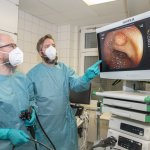
News • Hereditary non-polyposis colorectal cancer
Lynch syndrome: AI improves colorectal cancer screening
Researchers have now found that artificial intelligence (AI) can improve the effectiveness of colonoscopy in the presence of Lynch syndrome.

Researchers have now found that artificial intelligence (AI) can improve the effectiveness of colonoscopy in the presence of Lynch syndrome.
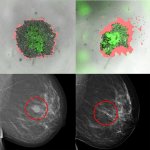
Swedish researchers have developed a method that should be able to predict whether a patient with breast cancer will benefit from a particular treatment or not.

A cancer researcher and consultant has estimated for the first time how many women are living with secondary breast cancer in England – in new research which could help to shape cancer services.

Researchers at the University of Tokyo have used artificial DNA to target and kill cancer cells in a completely new way. The method showed promising results against various cancers in lab tests on mice.

New research shows the power of artificial intelligence (AI) applied to endometrial carcinoma microscopy images. This could improve diagnosis and treatment of uterine cancer.

Glioblastomas march to the beat of a different drum: researchers discovered a type of cells that act as pacemakers, driving the growth of the brain tumour and increasing its resistance.

Treating pancreatic cancer patients with chemotherapy before surgery significantly improved 1-year survival rates compared to immediate surgery, a randomised clinical trial has found.

Prolonging life may not be a top priority for everyone: New research finds that patients with neuroendocrine tumours and their doctors often disagree when it comes to treatment goals.

An international study shows that a new method can easily find multiple types of newly formed cancers at the same time – including cancer types that are difficult to detect with comparable methods.
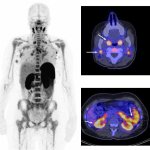
Dutch scientists have performed whole-body PET scans using a radioactively labeled antibody tracer against immune cells, to predict the effect of treatment with immune checkpoint inhibitors.
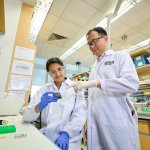
Scientists from Singapore discovered a novel low-cost method of testing for cancers. The test sequences heated clinical samples to isolate cancer-specific signatures found in a patient’s blood.

Canadian researchers have developed a new method of killing brain cancer cells while preserving the tissue around it. A remarkable side-benefit: chemotherapy of the cancer suddenly becomes possible.

Using fluorodeoxyglucose positron emission tomography (FDG-PET) imaging may give insights into possible dose reductions in ongoing radiation therapy of head and neck cancer. A promising study to explore this option was presented at the 2022 ASTRO/ASCO Multidisciplinary Head and Cancer Symposium held in Phoenix, Arizona.

Breast cryoablation is an emerging treatment for early-stage, localized breast cancer that destroys malignant tumours by freezing them. During the past decade, it has been increasingly utilized as an alternative to lumpectomy, but its long-term benefits compared to other breast cancer treatments are still unproven.

An international team highlights the importance of localising BRCA1 and BRCA2 gene mutations for the treatment of ovarian cancer.

This summer, The European Commission launched I3lung, a new research initiative as a part of Horizon Europe, the EU’s research and innovation program. This research initiative aims to create a cutting-edge, decision-making tool to help clinicians and patients select the best lung cancer treatment based on each patient’s specific needs and circumstances.

With an estimated one million cancer diagnoses missed across Europe in the last two years, the impact of the Covid-19 pandemic is predicted to set back European cancer outcomes by almost a decade.
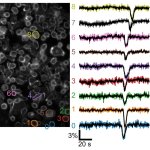
New research has found variable voltages in the membranes of breast cancer cells, revealing clues about how they grow and spread.
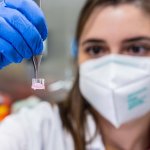
It is the size of a common pencil eraser, but it could have a huge impact on the therapy of glioblastoma: Scientists in Virginia have developed a novel 3D tissue-engineered model of the brain tumour microenvironment, which can be used to assess how the glioma cell invades healthy tissue, proliferates, and reacts to chemotherapy drugs.

New tests can identify over 50 types of cancer and boost detection of traditionally elusive cancers from tumour DNA in blood, researchers showed at the ESMO congress in September. These multi-cancer early detection (MCED) tests in development can spot common cancer signals and predict where the signal comes from in the body, results from a prospective investigation suggest.
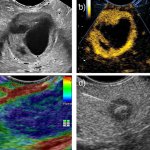
Endosonography poses unique challenges for medical professionals, because two demanding disciplines have to be mastered at the same time. The use of artificial intelligence (AI) could help speed up the notoriously slow learning curve of the procedure, says Prof Dr Christoph F. Dietrich. At the Visceral Medicine Congress in Hamburg, the expert explained how AI can help endosonography achieve…
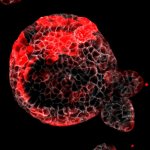
Researchers in Barcelona discovered the population of residual tumour cells responsible for the recurrence of colorectal cancer in other organs after removal of the primary tumour.

An advanced radiotherapy technique can be used to safely treat prostate cancer patients in as little as one to two weeks, compared with the current standard, which takes one to two months.
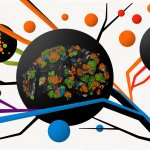
Researchers have created a tool that maps how breast cancer grows in previously unseen detail, and highlights how the cells around the tumour may be the key to controlling the spread of disease.
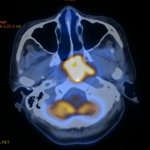
Until now, it was feared that vaccination against Covid-19 could reduce the success of treatment for patients with nasopharyngeal cancer. A recent study now gives the all-clear in this regard.